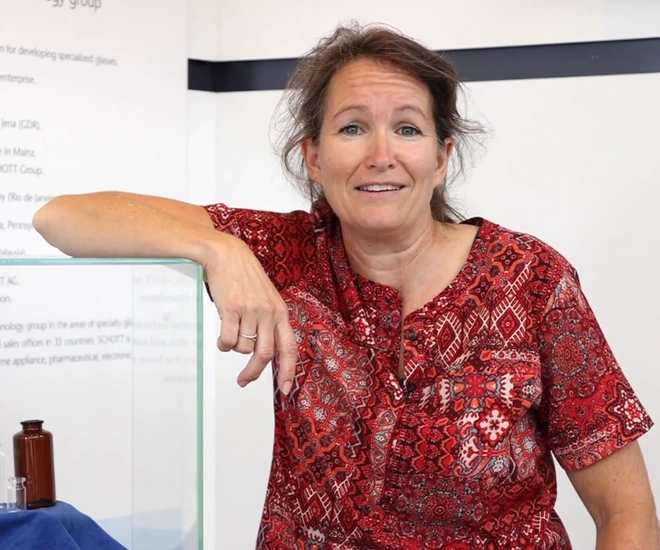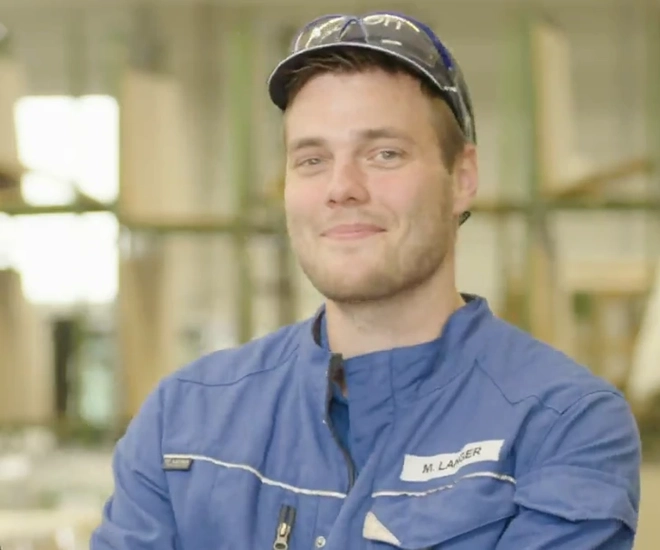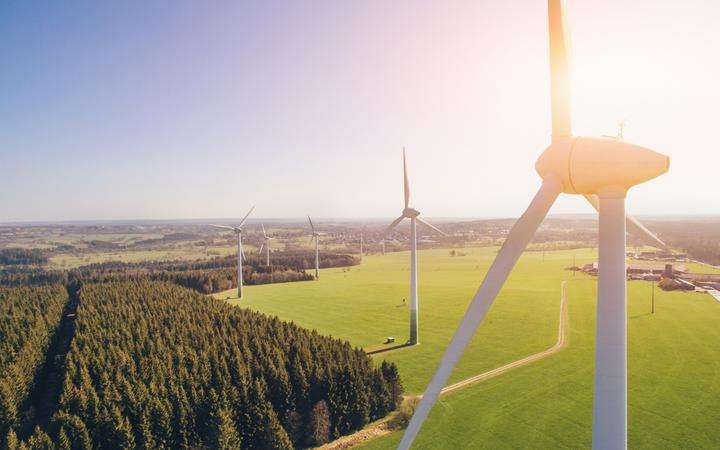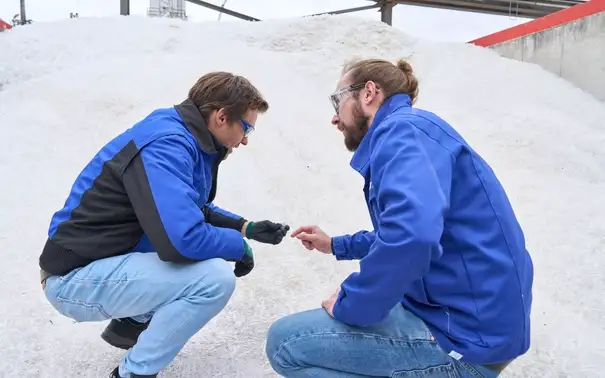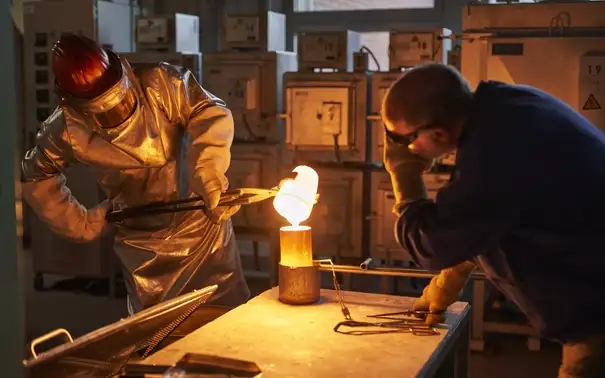
Environmental Responsibility
Transformation of the glass industry
As a global specialty glass manufacturer, we are part of an energy-intensive industry with a large CO2 footprint. SCHOTT has set out to meet the challenges that the sustainable transformation of our company entails. We have already reached the first milestones.
Our action plan
On our path to lower our CO₂ emissions, we follow the principle of ‘Avoid – Reduce – Compensate’.Technological Change
Improving energy efficiency
New momentum is being generated by the digitalization of the melting process and the use of artificial intelligence. With advanced sensors and technologies from the field of big data, we are able to better structure the vast amounts of data collected at our glass melting tanks, analyze it automatically, and use it to optimize our processes.
Renewable energies
We also utilize power purchase agreements (PPAs), which are contracts linked to specific renewable energy plants. For biogas (produced from biogenic waste) and low-carbon hydrogen, we are developing a comparable strategy for future applications. However, this approach depends on factors such as availability, infrastructure, and cost.
Compensation
However, as a manufacturing company, we will never be able to eliminate all emissions entirely. Therefore, we also support global climate protection projects to compensate unavoidable emissions. In doing so, we rely on certificates that meet internationally recognized standards such as the Verified Carbon Standard and the Gold Standard.
When selecting projects, we also apply additional quality criteria. These include afforestation and reforestation initiatives, as well as peatland restoration projects.
Corporate Carbon Footprint
Glass production is energy intensive
In the base year 2019, our direct and indirect emissions (Scope 1 and 2) amounted to around 1 million tonnes of CO₂e. The exact (location-based) footprint was 641,081 tonnes of CO₂e.
Upstream and downstream emissions (Scope 3) amounted to around 1.3 million tonnes of CO₂e.
In the 2024 fiscal year, we offset our business flights as part of our compensation efforts.
Our carbon footprint is audited annually by independent experts in accordance with the internationally recognized Greenhouse Gas Protocol (GHG). Since 2019, our Scope 1 and Scope 2 emissions have been externally verified. As of 2024, the audit includes our entire carbon footprint, including Scope 3 emissions.
We record all greenhouse gases and express them in carbon dioxide equivalents (CO₂e) for better comparability.
We calculate our Scope 1 and 2 emissions using both the market-based and location-based methods and disclose both perspectives.
We track our Scope 3 emissions using a hybrid approach based on both primary and secondary data.
Science based targets
As a research-driven technology company, we pursue a science-based climate strategy. That is why we have joined the Science Based Targets initiative (SBTi) and set ourselves ambitious CO₂ reduction targets across all three emission scopes (Scope 1–3).The independent validation by the SBTi confirms that our climate strategy is in line with the latest climate science – and supports the global 1.5°C target.

Product carbon footprint: Reliable CO₂ balances according to international standards
More and more customers are looking for products with the lowest possible climate impact. The Product Carbon Footprint (PCF) – the CO₂ footprint of a product – provides transparency when it is calculated in a traceable and standardized way.
As part of our sustainability strategy, we are preparing PCF declarations for selected initial products along the system boundary from cradle to gate. This is based on a company-wide guideline aligned with ISO 14067, which has been validated by independent auditors.
It also takes into account the Greenhouse Gas (GHG) Protocol and the PCF Guideline of the industry initiative “Together for Sustainability” (TfS). In doing so, we support the establishment of internationally compatible standards for transparent CO₂ accounting.
Setting standards
Through the use of state-of-the-art technology and continuous process improvements, we repeatedly set standards in the glass industry when it comes to environmental protection.

Continuous process improvements to reduce emissions and energy and water consumption
Responsible use of valuable resources
Natural resources are finite. We must use them responsibly and conscientiously. We have been reducing our water consumption, waste and emissions for decades.
Our internal recyclables loop is already well developed. We are now driving forward with additional solutions in the circular economy. Together with our customers and processing companies, we are developing the first innovative processes in pilot projects.
We want to make greater use of renewable and recycled materials and close material cycles. Furthermore, we want to reduce our water consumption and waste generation relative to value added.
Our long-term vision is to reprocess products in such a way that they can be reintegrated into the production process in an ecologically and economically sensible way.
Integrated EHS management system
Since 1995, we have been using an integrated EHS management system to ensure that high standards of environmental protection and health and safety are maintained at all our sites worldwide. It is based on the international ISO standards 14001 (Environmental Management Systems) and 45001 (Occupational Health And Safety).
In the meantime, the EHS standard for material compliance has also been added. These group-wide standards supplement national laws and regulations where it is important to SCHOTT to uniformly regulate relevant compliance topics and define a worldwide minimum standard.
Other key areas of responsibility
Want to know more? Let's talk
If you need more information about our commitment to environmental and climate protection, please contact us.
Contact us